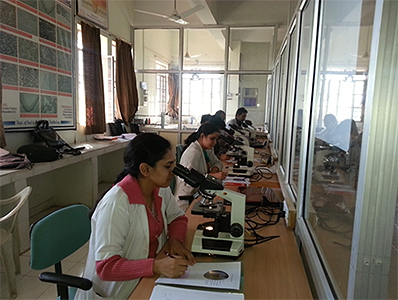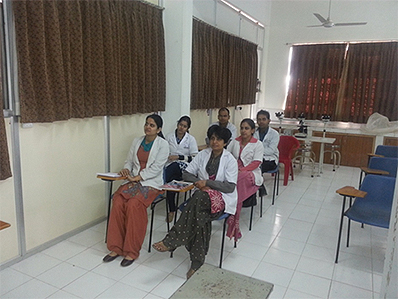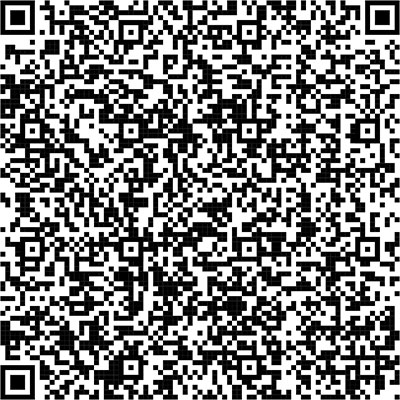The department teaches the students of I BDS the morphology of teeth, oral histology, embryology and physiology. Carving of teeth and identification of histological slides are also taught in the same year. In II-III BDS students are taught about various diseases of oral and para-oral region. The students are taught about the pathogenesis, various features and clinical management of these diseases. Identification of lesions is taught in the practicals
Masters in Dental Surgery / Post-Graduate Course
Broad outline of the course
- Study of principles of routine and special techniques used for histopathology including principles of histochemistry, immunohistochemistry, applied and theoretical biochemical basis of histochemistry as related to oral pathology.
- Advanced histological and histopathological study of dental and oral tissues including embryonic considerations, clinical considerations, biology, histology, pathology, prognosis, concepts and management of oral oncology, concepts of oral pre-malignancy.
- Study of special and applied pathology of oral tissues as well as relation of local pathologic and clinical findings to systemic conditions.
- Oral microbiology affecting hard and soft tissues. Study of clinical changes and their significance to dental and oral diseases as related to oral pathology
- Oral microbiology and their relationship to various branches of dentistry.
- Forensic odontology.
- Inter institutional postings such as cancer hospital, dermatology clinics, regional HIV detection centers, sophisticated instrumentation centers for electron microscopy and other techniques.
- Maintenance of records of all post graduates’ activities.
- Library assignment
- University dissertation
Objectives
To train a post graduate dental surgeon so as to ensure higher competence in both general and special pathology dealing with the nature of oral diseases, their causes, processes and effects.
An oral pathologist is expected to perform routine histopathological evaluation of specimens relating to oral and perioral tissues, to carry out routine diagnostic procedures including hematological, cytological, microbiological, immunological and ultrastructural investigations.
He / she is expected to have an understanding of current research methodology, collection, and aspects, a working knowledge on current databases, automated data retrieval systems, referencing and skill in writing scientific papers.
He/she is expected to present scientific data pertaining to the field, in conferences both as poster and verbal presentations and to take part in group discussions.




